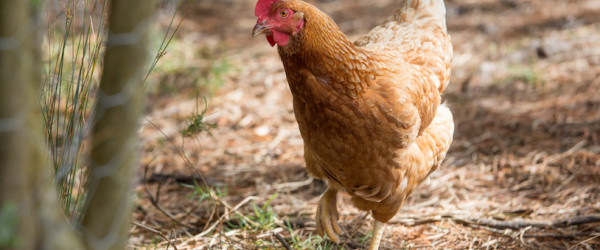
How does New Zealand rank for animal cruelty? A new index tells us
November 13th, 2017As a campaigner working on animal issues for a good number of years now, one question that I keep being asked is, “How does New Zealand compare to other countries?” Whilst we keep a close eye on developments overseas, it can be tricky to answer.
The Australian organisation Voiceless has now done a good part of that work with their new ‘Voiceless Animal Cruelty Index’ (VACI). Voiceless collated information on fifty countries that, between them, have about 80% of the world’s farmed animals.
The Voiceless Animal Cruelty Index, is available for anyone to access. It ranks the countries by a range of scores. There are scores in three key areas (consumption, production and legal sanctions). They have also presented detailed information in a report for each country. If you want to know, as I did, how they gathered the information and analysed it, that is all there too.
VACI looks at how hens like her are treated all around the world.
So, how does New Zealand rate? Not that good, it turns out. Overall New Zealand was ranked 30 out of 50 (1st is the least cruelty, 50th is the most cruelty). We have the most farm animals per person, and only Belarus and the Netherlands slaughter more animals, per person, in a year. We are a huge producer of animal products and most of that comes from dairy, meat chickens, and layer hens. All industries that cannot exist without animal suffering.
The one area where New Zealand did, at first glance, appear to do well was in the section that compared animal welfare laws. New Zealand had a head-start on many other countries as we actually have some. But laws alone are not enough when the government can produce industry codes that allow factory farms to do things to animals the law would not normally allow. We have a piece of paper, agreed on by politicians, saying animals are sentient. However, just acknowledging they are sentient does not stop some of the most horrendous abuse of animals. It does not stop chicken meat companies producing chickens with explosive growth rates. The chickens reach adult size while still four-week-old babies. Most are lame when sent off to slaughter as their young bones cannot support their adult weight. This is not how a sentient being should ever be treated. But at least we can pat ourselves on the back for having a law that says they are sentient? What we have is a law that looks good in name, but is not enforced, nor changes anything in reality. Sows are still in crates, chickens still in cages, and baby animals only days old are killed in the millions as waste products
Along with the information on animal exploitation, there is also an interesting article on the website that looks at the VACI rankings in relation to country’s wealth, freedoms and inequality level. This article raises some interesting questions about animal use trends globally.
Voiceless does acknowledge some limitations with the index. The main one is that it only looks at land-based farm animals. What this does not include is the billions, if not trillions, of marine animals killed annually. Voiceless is planning to include fish numbers and suffering when reliable data becomes available. Hopefully that is sooner rather than later. Fish are too often left out of the discussion when animal suffering is being considered. Including them in the future will help to avoid that.
The team that has put this together has done a great job expanding on the World Animal Protection Index from 2014, which, discouragingly, has often been used by the Ministry of Primary Industries as evidence they are doing a good job. But as most of us know, there are many reasons to be extremely concerned about the treatment of animals in New Zealand. From rodeo to factory farming and dairy, there is rampant animal abuse in New Zealand that urgently needs addressing.
I am hopeful that VACI will be frequently used to help improve the lot of animals all around the world.
Our website has more on New Zealand’s ranking, and you can see how New Zealand performed in detail by looking at the country report.
Stephen Manson, Campaigns Officer and Policy Advisor
 SAFE Animal Squad
SAFE Animal Squad